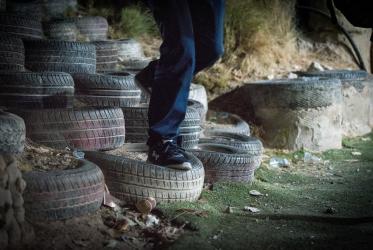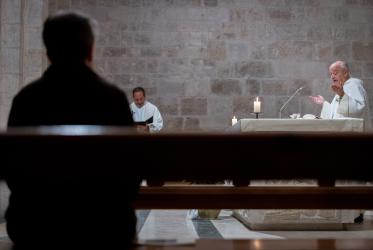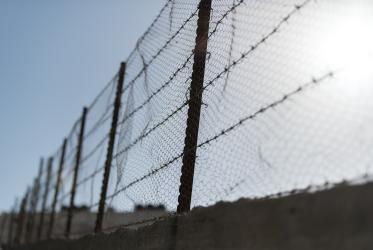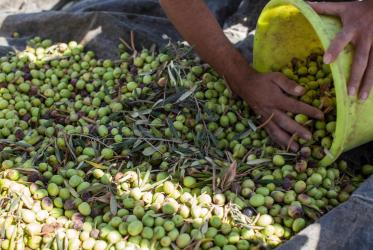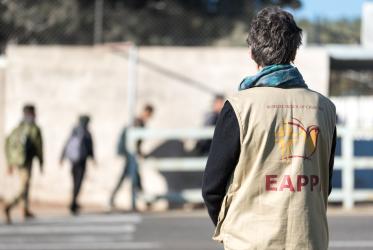Displaying 1 - 20 of 107
Stimmen der Standhaftigkeit inmitten der Zerstörung
25 March 2024
Words of steadfastness ring from the rubble
21 March 2024
Women and children in Gaza bearing brunt of ongoing war
16 January 2024
Violence against Palestinians is rising in the West Bank
16 November 2023
Ecumenical accompaniers report growing violence against Palestinians
21 September 2023


